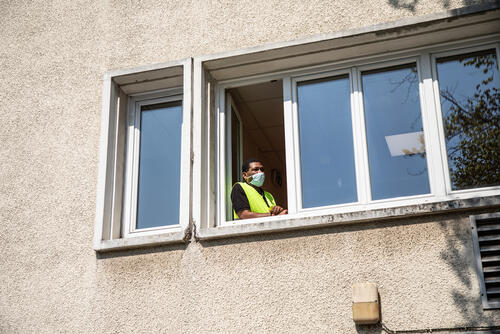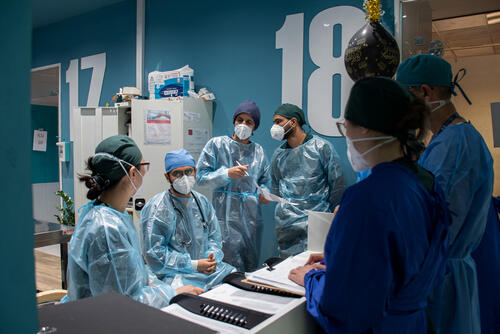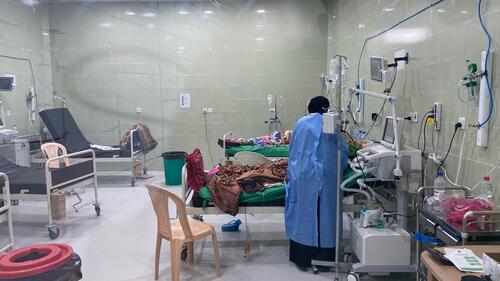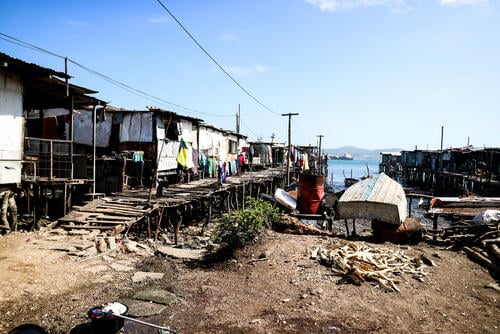- A survey has found infection rates of the new coronavirus to be as high as 94 per cent among some people living in precarious situations in Paris
- The findings confirm that COVID-19 is more easily spread among people living in crowded conditions, such as hostels for disadvantaged people and shelters for the homeless
- With winter coming, measures to provide homeless people with appropriate accommodation, such as hotels, must be urgently implemented.
Paris – Extremely high rates of coronavirus COVID-19 infection have been found among people living in overcrowded and poor conditions in and around Paris, France. The results come according to a seroprevalence
The survey – entitled Vulnerability and prevalence of COVID-19 in the Île-de-France region – aims to assess COVID-19 infection rates in people experiencing extreme hardship and to evaluate the main contributing factors. It is the first such survey to be conducted in Europe to date.
“The results confirm that the spread of the virus is particularly active in overcrowded and cramped conditions, such as when several people share a room, shower and kitchen,” says Epicentre epidemiologist Thomas Roederer, who led the survey.
The 818 participants were tested at 10 emergency shelters, two food distribution points and two workers’ hostels located in Paris, Val d’Oise and Seine-Saint-Denis.
COVID-19 seroprevalence – the percentage of people who have been in contact with the virus and developed antibodies – was found to be extremely high in all 14 sites. However, there were substantial variations between sites, according to the number of people present and their physical proximity.
Incidence rates were from 23% to 62% in the emergency shelters; 18% and 35% in the food distribution points; and 82% and 94% in the workers’ hostels.
MSF seroprevalence surveys found that up to:
35 %
35%
62 %
62%
94 %
94%
In the emergency shelters, one in two of the 543 people tested had been in contact with the SARS-COV-2 virus and developed antibodies. This compares to one in 10 people found to have the new coronavirus antibodies across the whole Île-de-France region, according to a recent population-based seroprevalence survey conducted by Santé Publique France.
The majority of survey participants said they had used preventive measures (such as frequent handwashing and wearing masks)
This is evidenced by the fact that people temporarily housed in gymnasiums had a prevalence of the virus that was three times higher than those housed in other types of accommodation.
With winter coming, the emergency measures implemented to provide homeless people with temporary shelter must not be allowed to contribute to forming new clusters.Corinne Torre, MSF head of mission for France
The survey’s findings indicate that, with the resurgence of the virus, homeless people urgently need to be found suitable accommodation that will not put them at increased risk of catching COVID-19, says MSF.
“With winter coming, the emergency measures implemented to provide homeless people with temporary shelter must not be allowed to contribute to forming new clusters,” warns Corinne Torre, MSF head of mission for France. “Hotels and accommodation with individual living spaces, which enable the necessary precautions to be applied effectively, are far preferable to communal facilities such as gymnasiums, which should be used only as a very last resort.”
In situations where people live in very poor and overcrowded conditions, such as the two workers' hostels included in the survey, MSF recommends that authorities ensure residents are kept fully informed and have access to preventive measures, screening and medical care, regardless of their status. Given the high risk of exposure to the virus in these types of accommodation, those people most at risk of developing severe forms of COVID-19 should be offered an alternative place to stay to keep them safe.
“Our main objective with this survey was to evaluate the intensity of virus transmission among people in very precarious situations and to help define specific preventive activities to better protect them,” says Roederer. “Today, with the increase in the number of positive COVID-19 cases in France, it also highlights the need to conduct more epidemiological studies to better define priority strategies for those people most at risk.”
Note to editors:
Médecins Sans Frontières worked with groups of people living in precarious situations (homeless people, migrants, refugees, asylum seekers, unaccompanied minors etc) between March and June 2020 as part of our response to the COVID-19 pandemic in France. In the Île-de-France region, MSF medical teams visited more than 70 accommodation facilities to provide medical care and help prevent the spread of the virus. MSF teams also provided medical support to two centres for COVID-19 patients in Châtenay-Malabry and Aulnay-sous-Bois.
Epicentre conducts field epidemiology activities, research projects and training sessions in support of Médecins Sans Frontières' objectives. As part of the COVID-19 response, Epicentre has participated in the evaluation of various rapid diagnostic tests in Cameroon. Epicentre also participates in consortia researching effective treatments for the prevention and treatment of moderate forms of COVID-19.
Institut Pasteur is at the forefront of the response against Covid-19, with the development of vaccines, diagnostic and serological tests, therapeutic strategies and more. As part of the COVID-19 precariousness and seroprevalence study in Ile-de-France conducted with MSF and Epicentre, Institut Pasteur, through the Cellule d'Intervention Biologique d'Urgence (CIBU), was in charge of carrying out serological tests on participants' blood samples. The CIBU enabled all participants to learn their serological status in the days following the nurses' visit.







